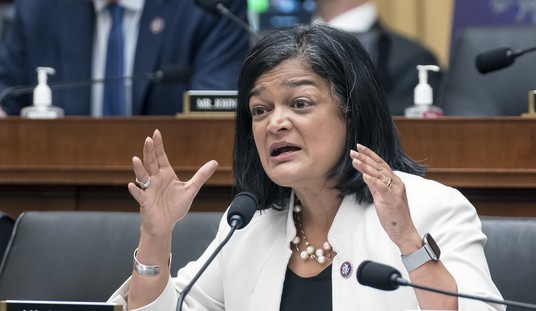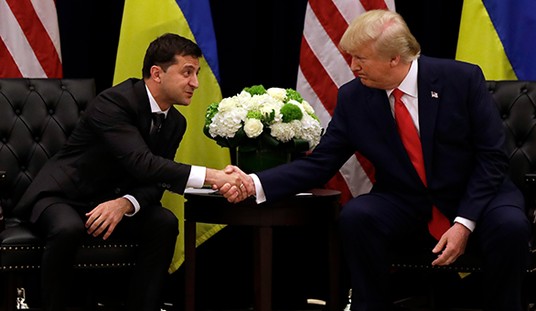Reliving the awful details of George Floyd's slow suffocation is brutal and emotionally draining. As always in matters touching on race, the thrum of ethnic hostilities is the background noise. Some have been eager, since the trial began, to cite George Floyd's drug use or heart trouble as the true cause of death (arguments the prosecution has effectively debunked). Others have argued that if Floyd had simply agreed to enter the squad car, he would be alive today -- as if that exonerates the officers.
But it seems that the shadow of Derek Chauvin is obscuring our ability to make distinctions and respond rationally to other, similar cases.
Similar is the operative word. In the space of a few days, we've seen a police officer shoot and kill Daunte Wright in Minnesota and learned of a December case in which two police officers pointed guns at and pepper-sprayed Army Lt. Caron Nazario. They may be similar on the surface, but they are quite different in the details.
When I first heard of the Wright case, it was described as a "traffic stop" for expired tags, so I was stunned to see a video of the police attempting to handcuff Wright. Was this a case of driving while Black? Were the police harassing the young man because, as another account put it, he had "air freshener" tags hanging from his rear-view mirror?
Well, Minnesota law does forbid hanging items from car mirrors, and the Minnesota ACLU says these laws are sometimes pretexts to stop Black drivers. But in this case, it doesn't seem that the police needed a pretext. The tags were expired. After checking on the vehicle through their database, the police found that there was an outstanding arrest warrant for Wright. He had failed to appear in court (via Zoom) for a "gross misdemeanor" charge of carrying a pistol without a permit, and for fleeing police on another occasion.
Recommended
As the police were attempting to take Wright into custody, he pulled away. Officer Kim Potter shouted, "Taser, taser, taser!" before tragically firing her gun at him instead. As soon as the deed was done, she cried, "Holy s---, I shot him."
This is a tragedy. Clearly, the officer who fired the gun made a grievous mistake. But that's a far cry not just from Chauvin's depraved conduct but from many other recent cases of police violence, as in the cases of Tamir Rice, Walter Scott, Philando Castile, Breonna Taylor and Eric Garner. Intent matters, as the jurors in the Chauvin case will soon be instructed. Chauvin had nine and a half minutes to consider the consequences of his actions. Officer Potter, though she committed a horrible error by reaching for her gun instead of her taser, pretty clearly did not intend to kill. She should never again be in a position to harm anyone, but this was not, it seems to me based on the known facts so far, a case of murder.
Nor is the rush to judgment about Potter fair. The demand that Potter be summarily fired, voiced by reporters at the mayor's press conference on Monday, is unjust. Remember the rule of law? The city manager, responding to calls for her dismissal, said that she was entitled to due process first. He has now been fired. That's how mobs work, not well-functioning polities. Potter announced her resignation on Tuesday.
Another case of police overreaction concerned Lt. Caron Nazario, an Army medic. He was driving to his home in Virginia in a new SUV that lacked a rear license plate. He had taped a temporary one to the inside of the back window, but that wasn't visible to police until they got close. According to several accounts, officer Daniel Crocker attempted to pull Nazario over but Nazario didn't stop. This prompted Crocker to put out a call that a vehicle was "eluding police."
On the rare occasions that I've been flagged down by police, I pull over right away -- or as soon as it is safe to do so. To keep driving for a mile or more seems likely to arouse the cops' suspicion. It's reasonable to drive to a well-lit place before stopping. But signaling compliance to cops seems important. Did he slow down and turn on his hazard lights? The drawn guns were probably excessive, though it's important to note that the police pulled their guns before knowing the identity of the driver.
Watching the video, you see overheated cops with guns screaming at Nazario to exit the car, and Nazario weirdly declining to comply yet carefully placing his cellphone camera on the dashboard to capture the whole encounter. To their repeated demands that he exit the car, he gives odd responses like, "What's going on?" They keep screaming at him to get out of the car and get on the ground and he keeps saying, "Calm down" or, "Can I speak to your supervisor?" Of course, Nazario was right that he did nothing wrong. But he invited some degree of escalation by failing to comply.
It's not news that we have a serious problem with violence in this country -- by citizens and police alike. But we compound that problem by forcing every new incident -- videotape preferred -- into a predigested narrative. Both the Wright and Nazario cases are examples of human weakness, poor judgment and tragedy, but it's not clear that they are morality plays.
Mona Charen is policy editor of The Bulwark and host of the "Beg to Differ" podcast. Her most recent book is "Sex Matters: How Modern Feminism Lost Touch with Science, Love, and Common Sense."


